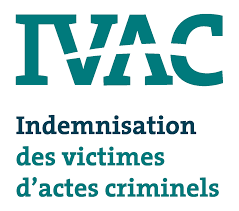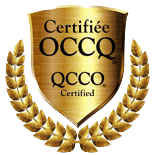MOVING EXPENSES ASSUMED BY THE CNESST OR IVAC: HOW DOES IT WORK?
CNESST, IVAC, moving : but what is the link between these three elements? The CNESST (Commission des normes, de l’équité, de la santé et de la sécurité du travail) and the IVAC (Compensation of victims of criminal acts) – whose general management reports to the CNESST – have different mandates, but an indirect link through their involvement in the protection and compensation of Quebec workers and victims of criminal offences.
This link manifests itself when people suffer injuries or remain with disabilities resulting from an accident at work, an occupational disease, an occupational injury or a criminal assault. Under certain conditions, the CNESST and the IVAC can therefore compensate them to promote their social rehabilitation.
Among other things, these two organizations provide for the reimbursement of moving expenses. In what contexts and what costs are covered? Here’s how it works.
IN WHICH CASES ARE MOVING EXPENSES REIMBURSED?
MOVING EXPENSES MAY BE REIMBURSED BY THE CNESST IF THE PERSON:
-
- as been the victim of an occupational injury or disease, leaving her with serious and significant functional limitations, which require an adaptation of her home. If it is financially impossible to adapt the home to its new condition, a maximum sum (around $6,000 according to 2018 data) is allocated to cover moving expenses. However, it is up to the person to prove that their home cannot be adapted, with photos, cost estimates, two quotes for the move and a supporting occupational therapist’s report.
- Is able to work despite the situation described above, but obtains a job more than 50 km from his place of residence. The allocated amount can go up to $3,000 and depends on two conditions:
- She must have carried out her job search more than 50 km away, if the position in question was not available within a radius of 50 km from her home.
- Their new home must be located within 50 km of the new job
- Is unable to move on her own due to the consequences of her occupational injury or illness.
MOVING EXPENSES – UP TO A MAXIMUM AMOUNT OF $7,471 – CAN BE REIMBURSED BY IVAC IF THE PERSON:
- Has been the victim of a criminal offense or suffered physical or psychological harm as a result of an assault.
- Fear for their safety (in the context of domestic violence, for example).
It is important to understand that this is a case-by-case treatment, and that the decision to bear the moving costs will depend on the specific circumstances of the case in question.
WHAT COSTS ARE WE TALKING ABOUT?
For the CNESST, all costs related to preparation (boxes, storage, insurance) and transportation will be reimbursed. On the other hand, the derived costs, such as the installation of a modem or a telephone line, the postal redirection, the expenses of notaries, brokerage, welcome tax, will not be covered.
For the IVAC, the costs reimbursed can also relate to everything related to transport and packaging , and unlike the CNESST, they can also include the costs:
- Related to the sale or purchase of a residence.
- Installation (curtains, paint, cleaning products, alarm system, etc.).
- Termination of lease.
- Double rent.
- Storage.
- Transfer of a telephone line and connection to the Hydro-Québec network.
On the other hand, costs related to renovation work, decorative items or the purchase of new furniture are not reimbursed.
These special situations – for various reasons – cannot be handled by all moving companies. Good news for Brault Déménagement customers: the company is authorized to take on this type of mandate. It is even she who will deal directly with the organizations in question, and who will be paid by them. Result? No costs to pay for the person and benevolent care provided in a context that is little.
Sources :
Marsan Avocat inc. Réadaptation CNESST – Les frais de déménagement [Rehabilitation CNESST – Moving expenses]. 2018.
IVAC. Aide financière pour la réhabilitation psychothérapique ou psychosociale, la réadaptation physique et la réinsertion sociale [Financial aid for psychotherapeutic or psychosocial rehabilitation, physical rehabilitation and social reintegration]. 2017.






